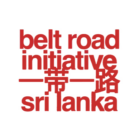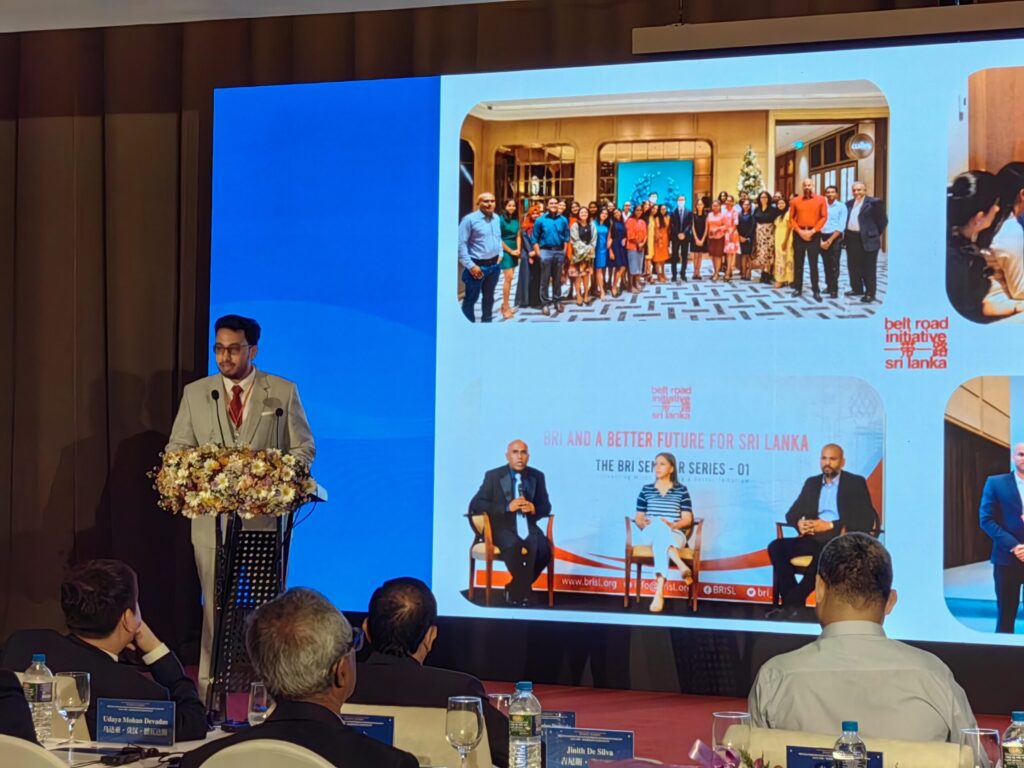2025 China–South Asian Countries Poverty Reduction and Development Cooperation Forum in Colombo, Sri Lanka
Shannon Hannibal Highlights Synergies Between China’s Poverty Reduction Models and Sri Lanka’s Policy Frameworks at 2025 China–South Asian Countries Poverty Reduction and Development Cooperation Forum in Colombo, Sri Lanka.
On May 15, 2025, Colombo hosted the “2025 China–South Asian Countries Poverty Reduction and Development Cooperation Forum,” bringing together more than 80 government officials, diplomats, experts, scholars, media representatives and members of international organizations from China, Sri Lanka, Pakistan, Bangladesh and beyond. The event was co-organized by the China Foreign Languages Publishing Administration and the Chinese Embassy in Sri Lanka, with support from the Institute of Contemporary China and the World, the Central and Eastern European and South Asian Communication Center (People’s Pictorial Publishing House), the Sri Lanka China Social and Cultural Cooperation Association, China Harbour Colombo Port City Project Company, China Communications Construction Group and Ceylonese Magazine.
Du Zhanyuan, Director of the China Foreign Languages Publishing Administration, opened the forum by emphasizing that eradicating poverty is a shared mission of humanity. He called for genuine, mutually beneficial cooperation—grounded in friendship and inclusiveness—to enhance people’s livelihoods, foster economic stability, and apply innovative technologies for poverty alleviation. Director Du pledged that his organization would use the forum as a platform to exchange best practices, develop region-specific strategies and strengthen the vision of a community with a shared future for mankind.
Sri Lanka’s Deputy Minister of Buddhism, Religious and Cultural Affairs, Gamagdala Dissanayake, reflected on Sri Lanka’s strides in health, education and infrastructure, while acknowledging persistent rural and urban poverty. He praised China’s success in leveraging cultural heritage for economic development and underscored the forum’s role in forging new partnerships and deepening cooperation networks.
Chinese Ambassador Qi Zhenhong reviewed China’s own poverty-reduction journey—culminating in the elimination of absolute poverty by the end of 2020—and detailed Beijing’s ongoing support for developing nations. He highlighted key initiatives such as the China-UN Peace and Development Fund, the South–South Cooperation Assistance Fund, the East Asia Poverty Reduction Cooperation Initiative and the China-Africa Poverty Reduction and People’s Welfare Cooperation Plan, all designed to build capacity and drive global progress.
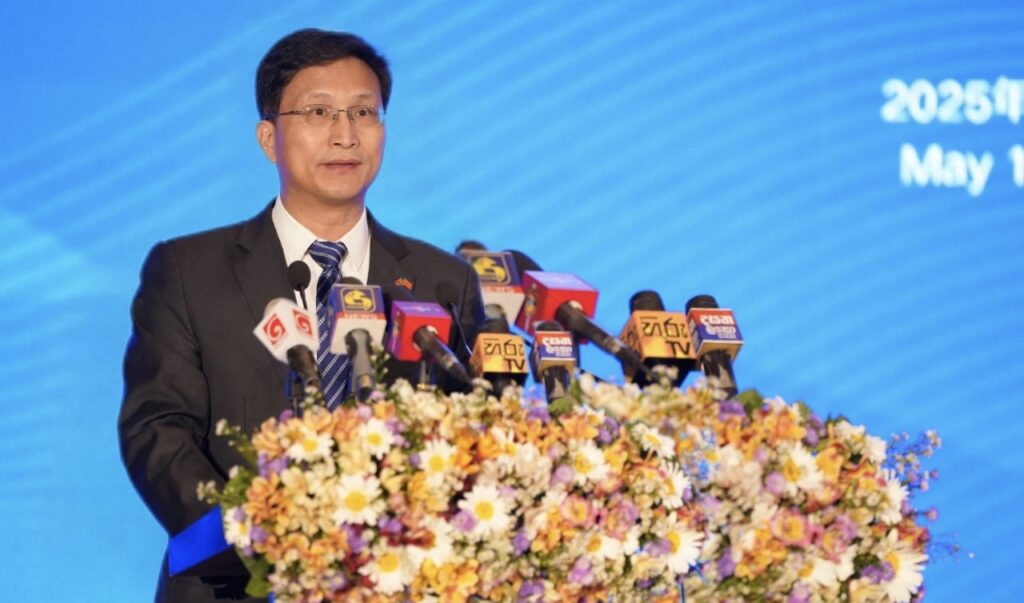
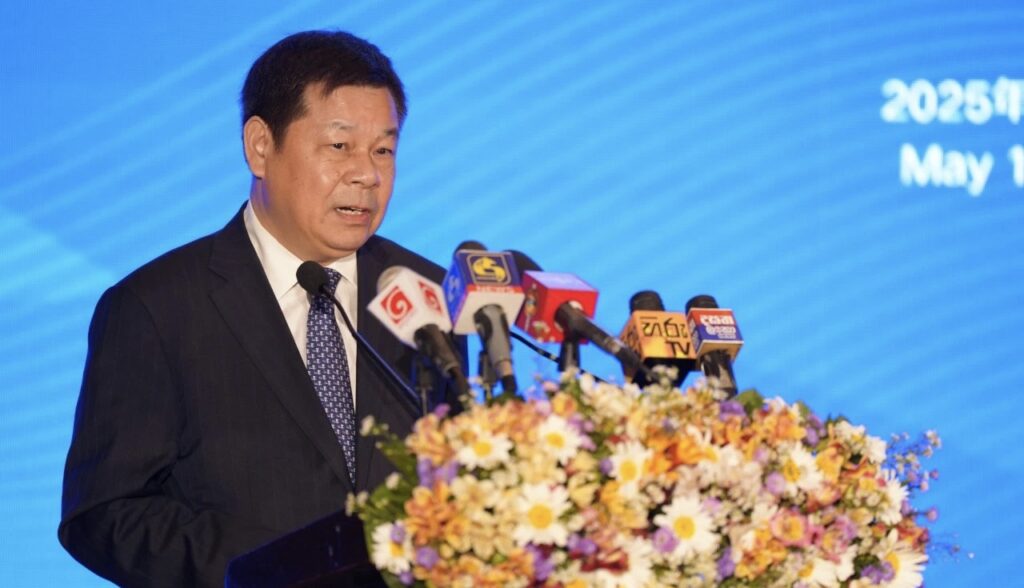
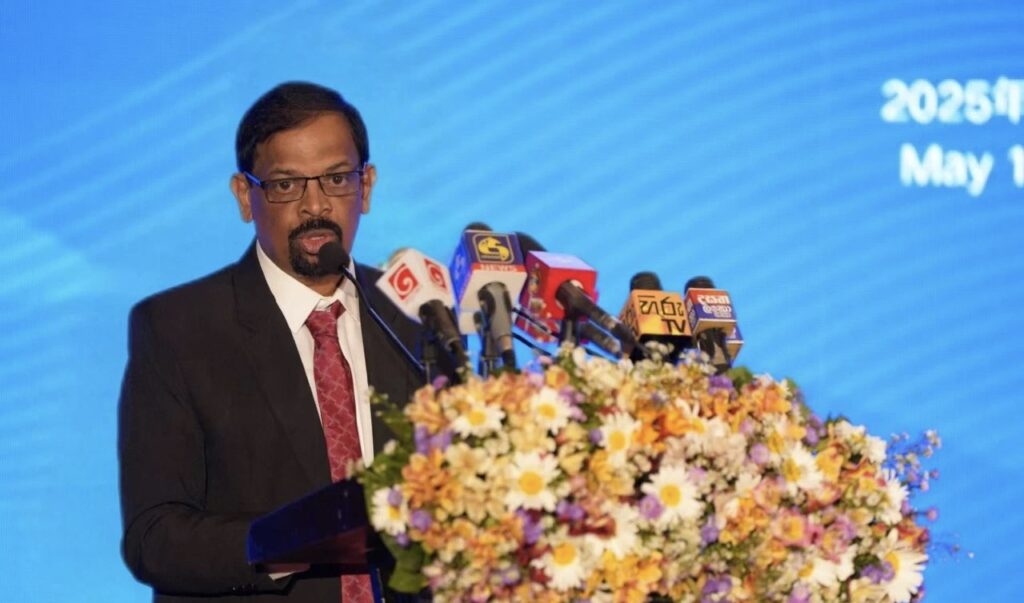
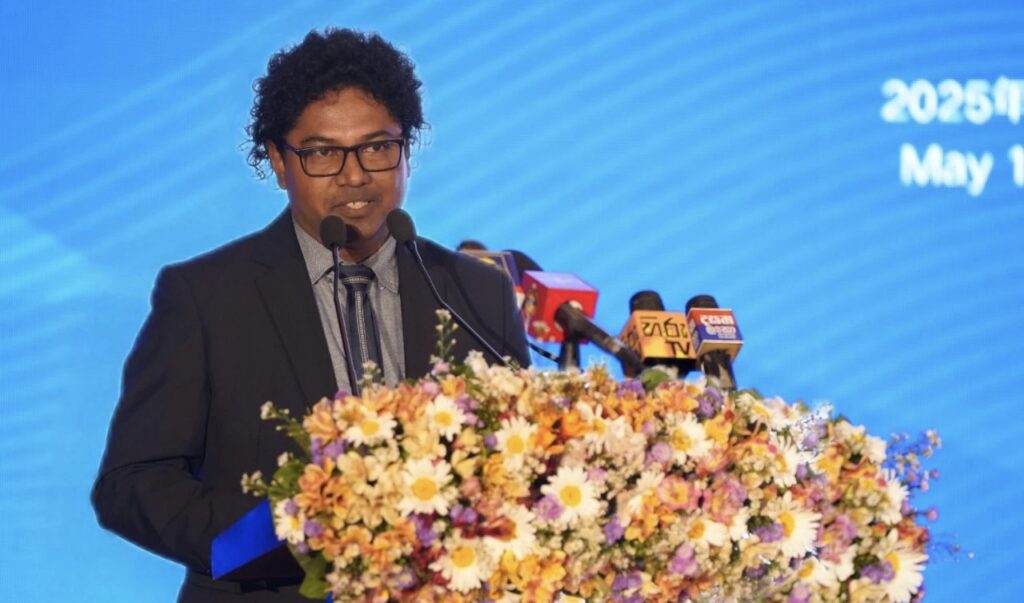
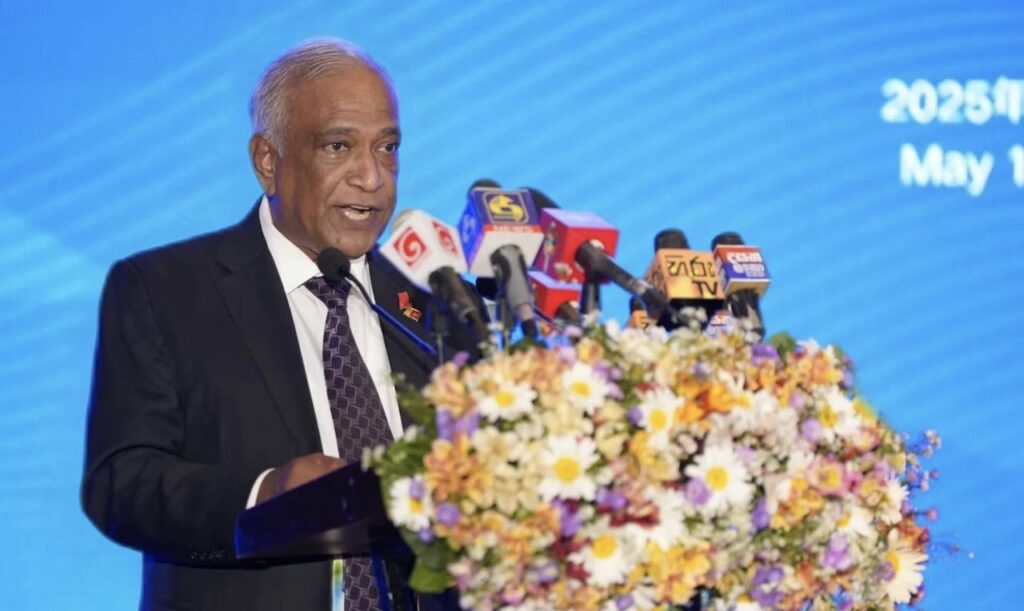
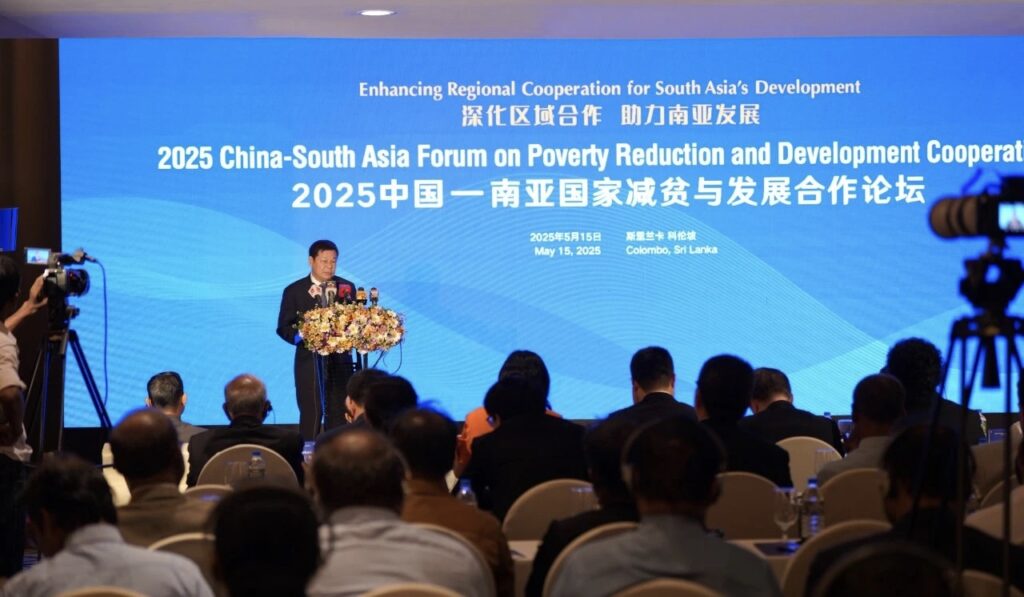
Speakers from academia and civil society then shared their perspectives:
– Indrananda Abeysekera, President of the Sri Lanka China Social and Cultural Cooperation Association, lauded China’s targeted poverty-alleviation and rural revitalization models as invaluable lessons for Sri Lanka and other South Asian nations.
– Kapila Munasinghe, FAO expert, showcased a South–South cooperation project that transferred technical know-how to boost fruit-industry yields—particularly bananas, pineapples and mangoes—thereby enhancing both domestic and export competitiveness.
– Dai Yonghong, Dean of the Institute of Regional, Country and International Communication at Shenzhen University, underscored the importance of tailoring poverty-reduction policies to local conditions and executing them with precision.
– Wang Dongxiao, Dean of the School of Marine Sciences at Sun Yat-sen University, explored how sustainable management of marine resources and monsoon forecasting can unlock new economic opportunities in South Asia.
– Shannon Hannibal, representing the BRISL think tank, detailed recent China-funded initiatives—from fruit value-chain improvements to sea-cucumber farming, rural road upgrades and the Mahaweli irrigation project—that have tangibly raised living standards.
– Udaya Mohan Devadas, Professor at the University of Kelaniya, outlined a comprehensive human-resources development framework—anchored in empowerment and human drive—to guide strategic policy design and implementation across the region.
– Guinness de Silva, Chairman of the Sri Lanka China Association, traced China’s path from poverty to moderate prosperity, crediting large-scale relocation, targeted assistance and rural revitalization for achievements that outpaced the UN’s 2030 poverty-eradication agenda
– Liu Zongyi, Researcher at the Shanghai Institutes for International Studies, highlighted ongoing China–South Asia cooperation in infrastructure, agricultural modernization, food security and green development—primarily through the Belt and Road and Global Development Initiatives.

During the forum, participants toured a bilingual exhibition of “Questions and Answers on Chinese-style Modernization,” published by the Institute of Contemporary China and the World. Liu Shuangyan of the China Foreign Languages Publishing Administration presided over its launch, noting that the volume addresses international queries about China’s modernization path in a clear, question-and-answer format. Hosted by Gao Xin of the Central and Eastern European and South Asian Communication Center, the forum fostered lively discussions on “Deepening Regional Cooperation to Accelerate South Asia’s Development,” underscoring both the challenges and the immense potential of collective action.
Shannon Hannibal from BRISL delivered a detailed presentation titled “China’ Development Lessons for Sri Lanka”. The presentation demonstrated BRISL’s practical role in translating Chinese experiences in rural revitalization into Sri Lankan realities. BRISL’s core approach focuses on advancing sustainable development, facilitating knowledge exchange and promoting real-world collaboration. In particular, BRISL aims to integrate the Belt and Road Initiative with local poverty reduction strategies, sustainable agriculture, infrastructure modernization, and regional trade and investment.
Key Presentation Themes: From Global Insights to Local Impact: During the forum, Shannon Hannibal from BRISL shared comprehensive insights on how China’s poverty alleviation experiences—especially its targeted, data-driven and community-based strategies—can be customized and applied in Sri Lanka. With over 800 million people lifted out of poverty in four decades, China’s methods offer adaptable, scalable approaches that BRISL is working to localize in rural Sri Lanka. the presentation drew on BRISL’s first hand field visits to observe Chinese best practices in action:
– Chongqing (2025): Studied rural revitalization initiatives in Pengshui Miao and Tujia Autonomous County.
– Yichun, Jiangxi Province (2024): Visited model villages to assess agricultural productivity and poverty alleviation models.
– Yulin, Guangxi (2025): Held high-level discussions with city leadership to explore city-to-city cooperation and technology transfer.
These immersive exchanges, organized under the auspices of the International Department of the CPC Central Committee and the Academy of Contemporary China and World Studies, YiChun and Yulin City governments, have directly helped BRISL’s advisory work back in Sri Lanka.
China’s assistance in Poverty Reduction in Sri Lanka in various direct and indirect ways has shown keen progress. As one of the earliest nations to recognize the Belt and Road Initiative, Sri Lankan administration remains as an active participant in both the Global Development Initiative (GDI) and South-South Cooperation.
BRISL highlighted during its presentation how ongoing Chinese-supported projects in Sri Lanka—including the Mahaweli Water Diversion Project, fruit value-chain development (FAO 2023), and sea cucumber farming initiatives—are transforming rural livelihoods and enhancing food security. Sri Lankan ongoing monitoring and documentation of these efforts position BRISL as a bridge for transparent knowledge-sharing between Chinese and South Asian stakeholders.
Domestic Context: Learning and Localizing: Sri Lanka’s past and present poverty reduction programs—such as Janasaviya, Samurdhi, Enterprise Sri Lanka, and the Mahaweli Development Programme—have laid important foundations. Yet, new challenges such as youth unemployment, regional inequality, and climate vulnerability require adaptive and innovative solutions. BRISL’s role is to synthesize China’s development toolkit and embed relevant components into Sri Lanka’s decentralized, people-centered poverty alleviation agenda.
